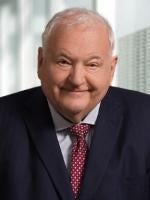If you are a physician approaching retirement, you may be thinking about the activities which await you once you cease your practice activities for good. You may be dreaming of lying on a beach with a cool drink, traveling the world, or doing good by providing services as part of a medical mission or medical response team. While many individuals in the workforce can retire after providing their employer with a few weeks’ notice, as a physician you’ll need to give yourself more time to make that transition. Careful planning for your retirement exit will ensure smooth sailing as you move toward a post-retirement life. Here are some things to consider:
- If you are part of a multi-physician practice, you’ll need to determine how much notice you will give to your professional colleagues and will need to work through reassignment of clinical, governance and other responsibilities. If you are a solo practitioner, you will need to determine how you will notify the individual employees of your practice and how items such as unused vacation or sick time and employee benefits (if any) will be handled.
- If you have an employment agreement with your practice, are an employee of a health care system, or are employed by a captive professional practice, you will need to review the notice requirements under your employment contract.
- Since you will be providing professional services through the date of your retirement, you will need to determine how to bill for these services following your departure from practice, particularly if you have historically done your billing in-house.
- There are legal requirements for patient notification regarding the manner in which patients can obtain copies of their medical records, as well as a newspaper notice requirement of the cessation of practice.
- As a licensee of the New Jersey Board of Medical Examiners, you will need to determine what type of license to maintain post-retirement. It is possible to obtain either a retired active, reduced fee license or a retired inactive, no fee license. Each of these has separate requirements and limitations that should be reviewed.
- You should carefully review any third party payor and vendor agreements, as well as space and equipment leases for your practice, as well as for contract termination and notice provisions. You should review your current professional memberships and subscriptions (including cable and streaming service subscriptions). All of these subscriptions have a monthly cost. If you practice with colleagues, they may feel that the associated costs are no longer necessary. If you are closing a solo practice, you may not want to pay for these costs once you are no longer actively working.
- You should schedule a call or meeting with your insurance broker to review the various options that may be available with regard to professional liability insurance and any other types of insurance that you maintain.
- If you do not plan on obtaining another direct patient care position, you should notify the NPPES that you will no longer be utilizing your NPI number once you are satisfied that you have received all claims payments.
- You will need to notify the New Jersey Controlled Dangerous Substance Unit and the federal Drug Enforcement Administration. These agencies will provide you with instructions regarding the destruction of prescription pads and other matters involving your CDS and DEA registration.
- If you will not be engaging in any practice activities, you should notify the hospitals and other health care facilities where you have Medical Staff privileges that you will be retiring.
- If you are employed by a captive P.C., you will need to follow up and confirm that the P.C. has a new physician shareholder to assure that you are no longer responsible for the medical decisions of the captive P.C.
- If your practice entity is not going to continue as an ongoing concern with other practitioners, you should take steps to dissolve your practice entity once you are satisfied that your practice activities have been wrapped up and all claims payments have been received. In addition, you will also need to have your accountant prepare and file a final tax return before your practice entity is dissolved.
The number of steps that a physician needs to take before retiring can appear somewhat daunting. Enlisting the help of an attorney, an accountant, and other professionals who have helped physicians through the process should allow you to sleep more peacefully at night and ensure that you will take all the steps needed to launch a successful retirement.







 />i
/>i

